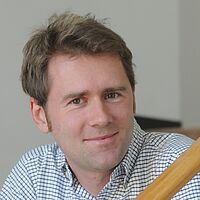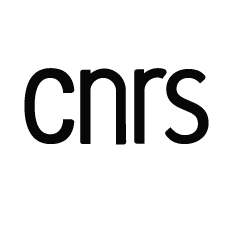Projet ANR "Re-thinking English Modal Constructions"
REM
Re-thinking English Modal Constructions (REM) : From feature-based paradigms to usage-based probabilistic representations
Vers une nouvelle conception des constructions modales en anglais : des paradigmes basés sur les traits distinctifs à la représentation probabiliste basée sur l'usage.
Le programme de recherche REM est un projet financé conjointement par l’Agence Nationale de la Recherche (ANR) et le Fonds National Suisse de la Recherche Scientifique (FNS) dans le cadre des PRCI (Projets de Recherche Collaborative – International). Il se propose d’étudier dix verbes modaux anglais à travers trois perspectives, la linguistique de corpus, la psycholinguistique et la linguistique computationnelle, afin de mieux appréhender la façon dont les expressions modales sont représentées mentalement.
Début du projet : mars 2017
Fin du projet : octobre 2021
Durée du projet : 43 mois
Financement de l’ANR : 237 100 € https://anr.fr/Project-ANR-16-CE93-0009
Financement du FNS : 329 920 CHF
Responsable France
Ilse Depraetere

Responsable Suisse
Martin Hilpert

Bert Cappelle ULille, STL) - Natalia Grabar (ULille, STL) - Pascal Denis (INRIA, CRIStAL, Magnet)

One of the central features of human language is that speakers can verbalize states of affairs that are not factual, but that rather should, might, or could be the case. Non-factual ideas can be expressed through words and constructions that belong to the grammatical domain of modality (Palmer 2001). In linguistics, the study of modality has given rise to a substantial research literature (De Haan & Hanssen 2009, Nuyts & Van der Auwera 2016) that forms the context of this project, which focuses on modal verbs in the grammar of English. Specifically, its focus will be on five core modal auxiliaries (may, might, can, should, and must), three semi-modals (have to, ought to, need to), and a periphrastic construction (be able to). The main question of this project relates modality to human cognition and the mental representation of language: How are modal expressions mentally represented? It is here that we see a gap in the research landscape that has so far not been sufficiently addressed: We are interested in the linguistic knowledge that speakers of English have that allows them to choose between expressions such as 'You should go home now', 'You have to go home now', or 'You ought to go home now'. These examples express non-factual ideas that are very similar, but subtly different. An idea that is still relatively widely held in the literature on modality (cf. Van der Auwera and Plungian 1998) is that the meanings of modal expressions can be distinguished on the basis of binary features such as the distinction between obligation and permission, “weak” and “strong” modality, and deontic and epistemic modality. To illustrate, the sentence 'You should go home now' encodes an obligation, whereas the sentence 'You may go home now' denotes a permission; 'You must go home now' denotes a stronger obligation than the sentence 'You should go home now'. While we do not dispute the usefulness of categorical semantic distinctions between different expressions of modality, we question whether these distinctions exhaustively capture speakers’ linguistic knowledge of modal expressions and whether matrices of cross-cutting categorical features adequately represent that knowledge. This project advances an alternative view that aligns itself with two recent theoretical developments in linguistics, namely the frameworks of Cognitive Construction Grammar (Goldberg 1995, 2006) and usage-based linguistics (Bybee & Hopper 2001, Bybee 2010). We hypothesize that knowledge of modal expressions is exemplar-based and probabilistic. In other words, speakers’ knowledge of modal expressions is not to be modeled as a paradigm of forms that can be fully described through a set of cross-cutting categorical features, but rather as a network of form-meaning pairs (Hilpert 2014, Hilpert & Diessel 2016) in which the forms of modal expressions are connected to a range of meanings through associative links. Differences in association strength account for the fact that speakers choose a certain modal expression in a certain speech situation. We thus view speakers’ knowledge of modal expression not as a discrete one-to-one mapping between a form and a list of semantic features, but rather as knowledge of the probability that a given form will convey a certain meaning in a certain context.
Un des traits fondamentaux du langage est que les locuteurs peuvent verbaliser des situations qui ne sont pas factuelles mais qui devraient ou pourraient être le cas. L'expression des situations non factuelles est effectuée avec des mots et des constructions qui relèvent du domaine de la modalité (Palmer 2001). En linguistique, la recherche sur la modalité a donné lieu à plusieurs travaux (De Haan & Hanssen 2009, Nuyts & Van der Auwera 2016), qui constituent le cadre de notre projet consacré aux verbes modaux en anglais. Nous allons étudier plus particulièrement cinq ? modaux dits centraux (may, might, can, could, should et must), trois semi-modaux (‘have to’, ‘ought to’ et ‘need to’) et une construction périphrastique (‘be able to’). La question principale du projet fait le lien entre la modalité et la cognition humaine ainsi que la représentation mentale du langage : comment les expressions modales sont-elles représentées mentalement ? C’est bien à ce niveau que se trouvent des questions fondamentales de recherche qui doivent être étudiées pour combler les lacunes actuelles : nous portons un intérêt aux connaissances linguistiques dont le locuteur doit disposer afin de choisir entre des expressions telles que ‘You should go home now’, ‘You have to go home now’, ou ‘You ought to go home now’. Ces exemples expriment des situations non-factuelles très proches, mais qui diffèrent néanmoins de façon subtile. Une idée, encore largement répandue dans la littérature sur la modalité (cf. Van der Auwera et Plungian 1998), stipule que les différents sens des expressions modales peuvent être distinguées sur la base de caractéristiques binaires telles que la distinction entre l'obligation et la permission, « la modalité faible » et « forte », et la modalité déontique et épistémique. Par exemple, ‘You should go home now’ exprime une obligation, alors que ‘You may go home now’ communique la permission ; ‘You must go home now’ exprime une obligation plus forte que ‘You should go home now’. Même si nous ne contestons pas l'utilité des catégorisations sémantiques pour différencier les expressions de la modalité, nous remettons en cause (a) l’idée que ces distinctions à elles seules capturent l’ensemble des connaissances linguistiques des locuteurs qui utilisent des expressions modales et (b) l’idée que ce type de catégorisation représente de façon adéquate ces connaissances. Notre projet met en avant une autre hypothèse qui propose d'aligner deux théories linguistiques récentes, à savoir la grammaire cognitive de construction (Goldberg 1995, 2006) et la linguistique basée sur l’usage (Bybee & Hopper 2001, Bybee 2010). Notre hypothèse est que la connaissance des expressions modales est probabiliste et basée sur l’usage. Autrement dit, la connaissance des expressions modales ne doit pas être modélisée comme un paradigme de formes qui s’explique par un ensemble de catégories, mais plutôt comme un réseau de paires forme-sens (Hilpert 2014, Hilpert & Diessel 2016) dans lequel les expressions modales sont connectées entre elles et à tout un éventail de sens par le biais de liens associatifs. Les différences de la force associative peuvent expliquer le fait que les locuteurs choisissent une expression modale donnée dans un contexte donné. Nous considérons donc que les connaissances des expressions modales par un locuteur ne se présentent pas comme une association univoque entre une forme et un ensemble de traits sémantiques, mais plutôt comme la connaissance de la probabilité qu’une forme donnée véhiculera une certaine signification dans un contexte donné.
Ouvrage
Hilpert, Martin, Bert Cappelle & Ilse Depraetere. (Eds). (en cours). Modality and Diachronic Construction Grammar. Benjamins.
Articles
Cappelle, Bert, Ilse Depraetere & Mégane Lesuisse. (2019). The necessity modals have to, must, need to and should: using n-grams to help identify common and distinct semantic and pragmatic aspects. Dans Constructions and Frames 11 (2): 220-243.
Depraetere, I. (2019). Meaning in context and contextual meaning: a perspective on the semantics-pragmatics interface applied to modals. Dans Anglophonia 28. Edité par Olivier Simonin, Philip Miller et Henri Le Prieult. Sens conventionnel et implicite. https://doi.org/10.4000/anglophonia.2453
Leclercq, Benoît & Ilse Depraetere. (soumis). Making meaning with be able to: modality and actualisation. Dans English Language and Linguistics.
Li, Bo, Mathieu Dehouck & Pascal Denis. (2019). Modal sense classification with task-specific context embeddings. Dans ESANN 2019 proceedings, European Symposium on Artificial Neural Networks, Computational Intelligence and Machine Learning. Bruges (Belgique), 24-26 Avril, i6doc.com publ., ISBN 978-287-587-065-0. Accessible via http://www.i6doc.com/en/.
Conférences invitées & conférences plénières
Cappelle, Bert. (2019). How to make a model of modals. Colloquium on the relationship between grammar and pragmatics III, Université de Tsukuba (Japon), 1er Août. (conf. invitée)
Cappelle, Bert. (2019). Short-circuiting. How constructions can constrain what can can mean in context. Université de Bochum (Allemagne), 7 Mai. (conf. invitée)
Cappelle, Bert. (2019). Mmmm... Modals! A view from Construction Grammar. Grammar and Pragmatics research group, Université d’Anvers (Belgique), 8 Mars. (conf. invitée)
Depraetere, Ilse. (2018). Conventionalisation and pragmatic meaning. Journée d’études Sens conventionnel et implicite, Université de Perpignan, 25 Mai. (conf. invitée)
Depraetere, Ilse. (2018). The meaning of modals. A view from pragmatics. ISLE 4 (International Society for the Linguistics of English), Londres (Angleterre), 17-20 Juillet. (conf. plénière)
Communications
Cappelle, Bert. (2018). When short-circuiting gets short-circuited: on humorous misuse of modal verb constructions. Séminaires des linguistes, Université de Lille, UMR 8163 STL, 15 Juin.
Cappelle, Bert & Ilse Depraetere. (2017). Short-circuited implicatures: a view from Construction Grammar. IPrA 15 (International Pragmatics Association), Belfast (Irelande du Nord), 16-21 Juillet.
Depraetere, Ilse. (2019). De l'interface sémantique-pragmatique: sens modal en contexte. Le possible et le nécessaire – Domaines conceptuels et expressions de la modalité – En l’honneur de Paul Larreya, Université de Pau & des Pays de l'Adour, 17-19 Octobre.
Depraetere, Ilse, Bert Cappelle & Martin Hilpert. (2021). Rethinking English modal constructions : From feature-based paradigms to usage-based probabilistic representations. ISLE 6, Joensuu (Finlande), 2 Juin (workshop de fin de projet).
a. Introduction (Ilse Depraetere, Bert Cappelle and Martin Hilpert)
b. A new model for the analysis of modal meaning : a theoretical bridge between Construction Grammar and Relevance theory (Benoît Leclercq)
c. Possibility modals : which semantic and pragmatic conditions make them possible? (Cyril Grandin, Bert Cappelle and Ilse Depraetere)
d. Necessity modals and the role of source as a predictive factor (Ilse Depraetere, Bert Cappelle, Cyril Grandin and Benoît Leclercq)
e. Modals in the network model of Construction Grammar (Susanne Flach and Martin Hilpert)
f. You must/have to choose – how speakers decide between non-synonymous modals. Convergent evidence from psycholinguistics (Susanne Flach, Bert Cappelle and Martin Hilpert)
g. Modals as a predictive factor for L2 proficiency level (Natalia Grabar)
h. Revisinting modal sense classification with state-of-the-art language models (Mathieu Dehouck and Pascal Denis.
i. Discussant : Bernd Kortmann
Depraetere, Ilse & Gunther Kaltenböck. (2018). Modal meaning and illocutionary force: a corpus-based analysis of hedged performatives. AMPRA 4 (American Pragmatics Association), University at Albany, State University of New York (États-Unis), 1-3 Novembre.
Depraetere, Ilse & Gunther Kaltenböck. (2019). Hedged performatives in spoken discourse. Workshop: The expression of stance in spoken discourse (Organisé par : Nigel Ward, Gina Levow & Douglas Biber). IPrA 16 (International Pragmatics Association), Hong Kong (Chine), 9-14 Juin.
Depraetere, Ilse & Gunther Kaltenböck. (2019). Hedged performatives and (inter)subjectivity. Workshop: Pragmatic markers and clause peripheries (Organisé par : Jolanta Šinkūnienė & Daniel Van Olmen), Rencontre annuelle de la Societas Linguistica Europaea (SLE), Leipzig (Allemagne), 21-24 Août.
Depraetere, Ilse & Benoît Leclercq. (2020, soumis). On lexically-regulated saturation. AMPRA 5 (American Pragmatics Association), The University of Britisch Columbia, Vancouver (Canada), 16-18 Octobre.
Grabar, Natalia, Thierry Hamon, Bert Cappelle, Cyril Grandin, Benoît Leclercq & Ilse Depraetere. (2020, soumis). Prédire le niveau de langue d’apprenants d’anglais. JEP-TALN-RECITAL 2020 (Traitement Automatique des Langues Naturelles), Nancy, 8-12 Juin.
Grandin, Cyril. (2018). A corpus-based analysis of speakers’ choices between modal expressions. DOCTILING, 5ème edition, Université de Lille, 19 Juin.
Grandin, Cyril. (2020). A multifactorial approach to necessity and possibility: Corpus-driven study of modal verbs in American English. ICAME 41 (International Computer Archive of Modern and Medieval English) - Language and Linguistics in a Complex World: Data, Interdisciplinary, Transfer, and the Next Generation. University of Heidelberg (Allemagne), 20-24 Mai.
Grandin, Cyril, Bert Cappelle & Ilse Depraetere. 2019. What makes us choose which modal? Putting semantic, syntactic and lexical factors in the balance. ICAME 40 (International Computer Archive of Modern and Medieval English), Neuchâtel (Suisse), 1-5 Juin.
Grandin, Cyril, Bert Cappelle & Ilse Depraetere. (2019). What makes us choose which modal? Putting semantic, syntactic and lexical factors in the balance. ICLC 15 (International Cognitive Linguistics Conference), Nishinomiya (Japon), 6-11 Août.
Grandin, Cyril, Bert Cappelle & Ilse Depraetere. (2019). L’impossible et le superflu. Le possible et le nécessaire – Domaines conceptuels et expressions de la modalité – En l’honneur de Paul Larreya, Université de Pau & des Pays de l'Adour, 17-19 Octobre.
Leclercq, Benoît. (2020). From modals to modal patterns: An n-gram analysis of can, could and be able to. ICAME 41 (International Computer Archive of Modern and Medieval English) - Language and Linguistics in a Complex World: Data, Interdisciplinary, Transfer, and the Next Generation. University of Heidelberg (Allemagne), 20-24 Mai.
Li, Bo. (2018). Modal sense classification. Rencontres Magnet au vert, Hardelot, 29-30 Août.
Li Bo, Mathieu Dehouck & Pascal Denis. (2019). Modal sense classification with task-specific context embeddings. ESANN 27 (European Symposium on Artificial Neural Networks, Computational intelligence and machine learning), Bruges (Belgique), 24-26 Avril.
Lille REM Team. (2019). Présentation du projet REM ‘Re-thinking English Modal Constructions’ au séminaire des linguistes “Tendances en linguistique”, Université de Lille, UMR 8163 STL, 11 Octobre.
a. Introduction (Ilse Depraetere)
b. Brève présentation des « work packages » (Ilse Depraetere, Bert Cappelle, avec la collaboration de Pascal Denis et Natalia Grabar)
c. Extraction des données et guide d’annotation (Mégane Lesuisse, Ilse Depraetere)
d. Pré-présentation d’une communication de colloque (WP1): « L’impossible et le superflu : utiliser les méthodes de corpus pour identifier les emplois non acceptables des modaux et la redondance de variables » (Cyril Grandin)
e. Discussion autour de travaux en cours :
§ Constructions modales à verbes de nécessité – visualisation des similarités et différences par des diagrammes de Venn et dendogrammes (Bert Cappelle, Mégane Lesuisse)
§ Les modaux et les actes de langage (Benoît Leclercq)
§ Source de la modalité (Audrey Buisine, Ilse Depraetere, Cyril Grandin, Benoît Leclercq, Robin Vallery)
Organisations de séminaires et de journées d'études
Cappelle, Bert & Martin Hilpert. (2018). Modality and Diachronic Construction Grammar. ICCG 10 (International Conference on Construction Grammar) : Construction grammar(s) today: Methodologies, concepts and applications, Paris, 16-18 Juillet. https://iccg10.sciencesconf.org
Lille REM team. (2019). Présentation du projet REM ‘Re-thinking English Modal Constructions’ au séminaire des linguistes STL “Tendances en linguistique”, 11 Octobre. (cf. supra pour plus de détails)
Depraetere, Ilse, Bert Cappelle & Martin Hilpert. (2020). Rethinking English modal constructions: From feature-based paradigms to usage-based probabilistic representations. ISLE 6, Joensuu (Finlande), 3 Juin. (cf. supra pour plus de détails)

